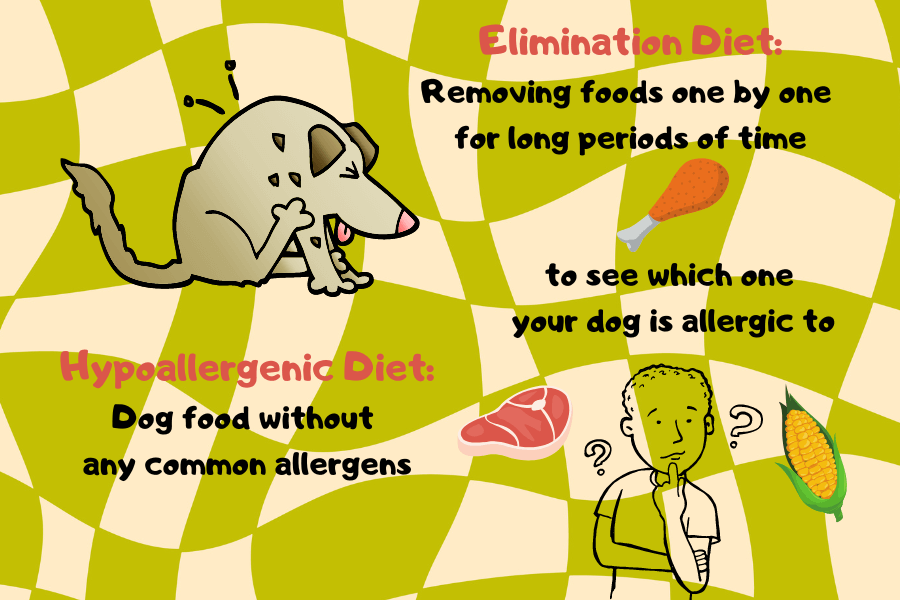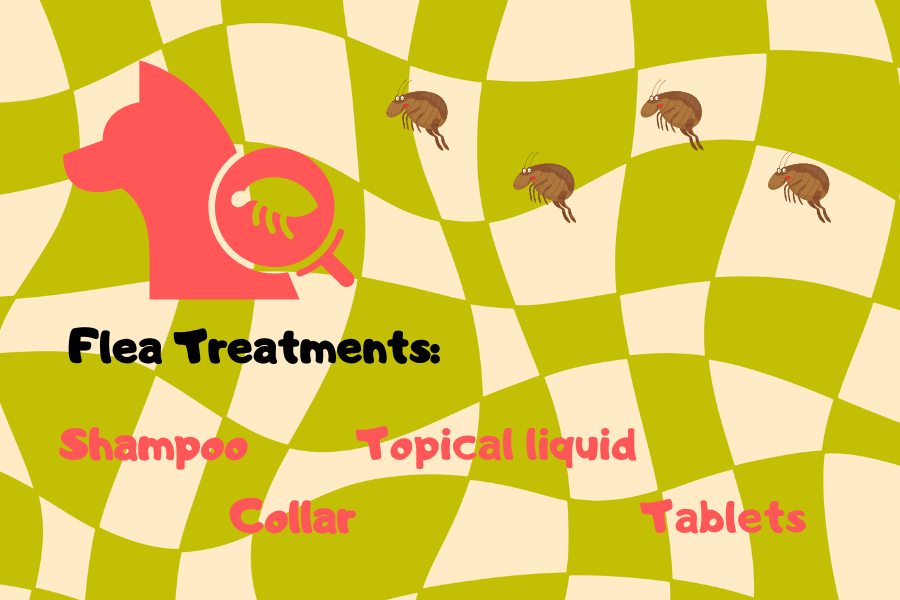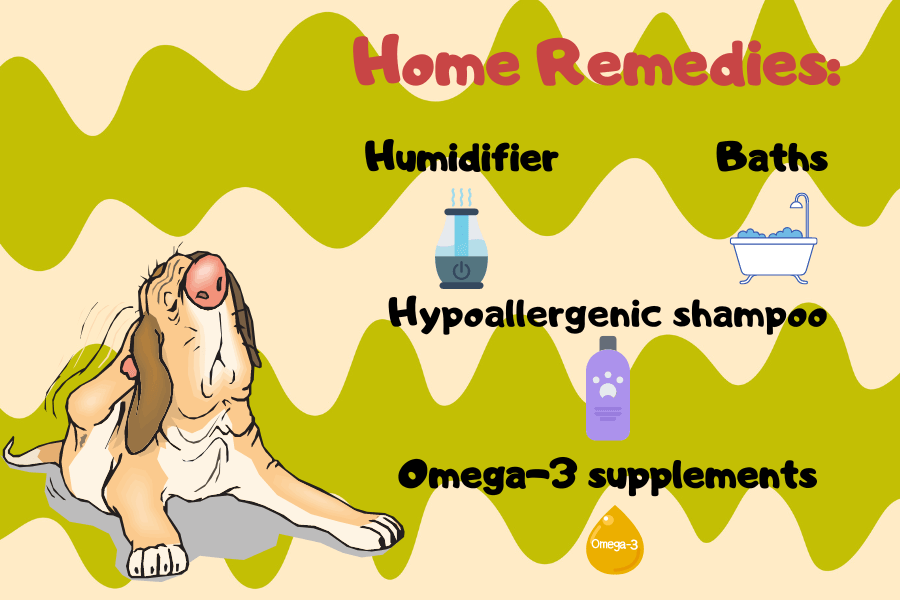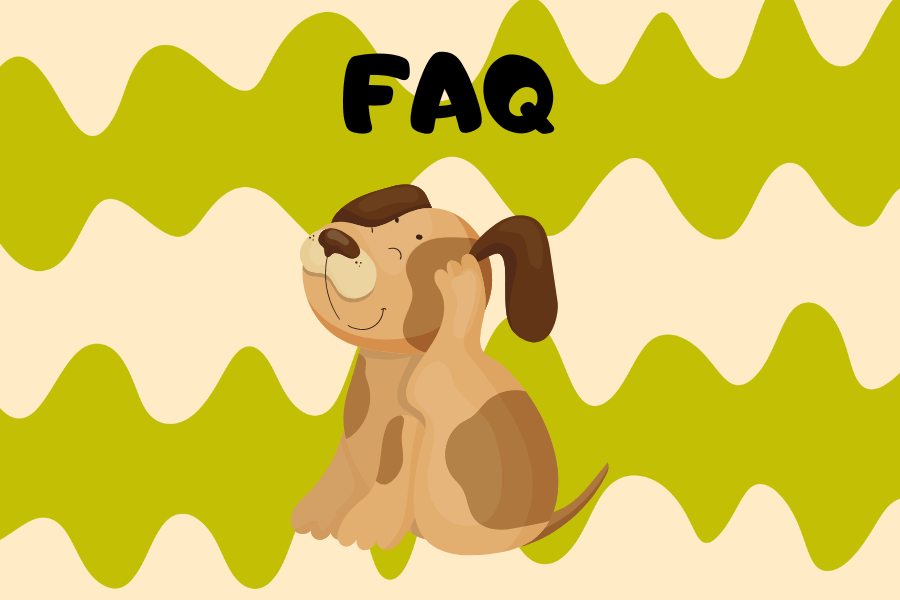Possible Causes
- Fleas or ticks
- Food allergies
- Environmental allergies
- Skin infections
- Diseases (e.g., mange)
- Ringworm
- Dry air
- Hormonal imbalances
Scratching and Itching in Dogs
Why is my dog so itchy? Dogs scratch and itch for many reasons. It’s their natural way of dealing with things that bother them, such as fleas and ticks. However, excessive scratching can lead to hot spots and other skin issues, so it’s vital to find out what’s causing your dog to itch in the first place.
Normal itching shouldn’t last more than a few days and shouldn’t cause your dog any discomfort. If the itching persists for more than a week or two, or if your dog seems to be in pain when scratching, it’s time to take them to the vet.
Story Time
Last summer one of my friends asked me to take care of her dog, Max, while she was on vacation. I gladly agreed to help, but after a few days, I noticed that Max was scratching himself all the time. I took him to the vet and they told me he had fleas. They prescribed an anti-flea bath and gave me instructions on how to give it to him.
It was a bit of a challenge, but I managed to get Max into the bathtub and give him the bath. Afterward, he seemed much more comfortable. I continued to give him regular baths with the shampoo and eventually, his itching stopped. When my friend returned from vacation, she was mortified – she had forgotten to put on his new anti-flea collar! Fortunately, all is well now.
Why Is My Dog So Itchy? Food Allergies
One of the most common causes of itchy skin in dogs is food allergies. Just like humans, dogs can be allergic to certain ingredients in their food. The most common allergens are proteins, such as beef, chicken, and fish. Grains, such as wheat and corn, are also common triggers.

If your dog has a food allergy, your vet may recommend switching to a hypoallergenic diet, which is a specially formulated food with limited ingredients. It may take a few weeks for your dog’s symptoms to improve, so be patient and stick with the new diet.
Environmental Allergies
Dogs can also be allergic to pollen, dust mites, and mold spores floating around. These allergies are more common in the spring and summer months when pollen counts are high. The best way to treat environmental allergies is to avoid the things that trigger them. This may mean keeping your dog inside on days when the pollen count is high or using a filter in your home to remove dust and other allergens from the air.
Fleas
Fleas can be difficult to get rid of. If you see flea bites on your dog, the first step is to treat them with a flea medicine. There are many different products available, and you can ask your vet which one is best for your dog.
In addition to treating your dog, you’ll also need to treat your home. Vacuum thoroughly and wash all of your dog’s bedding in hot water. You may also need to use a flea bomb or spray in your home to get rid of the fleas completely.

Why is my dog so itchy? Read on for more reasons!
Skin Infections
If your dog has a yeast or bacterial infection, they’ll need to be treated with antibiotics or antifungal medication. Your vet may also recommend a special diet or supplements to improve your dog’s skin health.
Why is my dog so itchy? Here’s the full list of skin infections and diseases that can make your dog itch and scratch excessively:
- allergic dermatitis;
- bacterial skin infection;
- yeast infection;
- skin mites;
- demodectic mange;
- sarcoptic mange;
- ringworm;
- autoimmune skin disease;
- hot spots;
- parasites.
My Dog Keeps Scratching: Hot Spots
If your dog keeps scratching certain parts of their body, they may develop hot spots. If it happens, your vet may recommend a topical cream or ointment. In addition, you’ll need to prevent your dog from scratching and licking the hot spot further. This can be done with an Elizabethan collar (cone of shame) or numbing the area with topical medication.
Other Things That Can Cause Itching
Why is my dog so itchy? If it’s winter, your pet’s itchy skin may be caused by the dry air. Using a humidifier in your home can help to reduce the itchiness and avoid dry skin in dogs.
Hormonal imbalances, such as those that occur during pregnancy or heat cycles, can also cause itching. Certain medications, including some antibiotics and steroids, can have side effects including itching. Cancer can also be the culprit, as can kidney disease. If you think your dog may be itchy because of a serious health condition, take them to the vet for an evaluation.
When to Go to the Vet?
If your dog is itching, and you can’t figure out why, it’s always best to consult an expert. A veterinarian will be able to find the cause of the itchiness and recommend appropriate treatment.
In some cases, they may recommend a trial of medication or a change in diet to see if that helps. If the itchiness is caused by an infection, antibiotics are the typical prescription. If your dog’s itchiness is severe or doesn’t improve with treatment, you should take them back to the vet for further evaluation.
How to Treat Itchy Skin in Dogs
If you’re wondering how to relieve your dog’s itchiness at home, follow these steps:
- Brush and bathe your dog regularly to remove any allergens or irritants from their skin.
- Use a hypoallergenic shampoo and avoid using any harsh chemicals on your dog’s skin.
- Use a humidifier in your home to reduce the dryness of the air.
- Make sure your dog is getting enough omega-3 fatty acids in their diet. This can be done by feeding them fish oil supplements or adding fish to their diet (but don’t neglect vitamin E!).

For severe itchiness, your vet will prescribe medication.
Other Symptoms
If you notice your dog is excessively licking or chewing at their skin, they may have bald spots on their body. What other symptoms should you look for? See if they have any:
- redness;
- hair loss;
- scaling;
- crusts;
- ulcers;
- pustules;
- pigment changes;
- dryness;
- greasiness.
The sooner you can get a diagnosis and treatment, the better chance your dog has of recovering.
FAQs About Dog Itching

Why Is My Dog So Itchy But Has No Fleas?
Fur flying and scratching incessantly, your pup has you wondering why they’re so itchy when all checks for fleas come up negative. There may be other explanations – from allergies to fungal skin infections or contact dermatitis – that can only be determined after a visit with the vet. Take care of your canine companion and get to the bottom of this mysterious itch!
What Do I Give My Dog to Stop Itching?
Is your pup feeling itchy? Don’t try to diagnose them yourself – take them to the vet first! It could be an underlying condition that needs treatment. But for mild cases of itching, a medicated bath or special anti-itch cream designed just for dogs may provide some relief.
When Should I Be Concerned About My Dog’s Itching?
Any itching can be a sign of something serious, so don’t ignore it! Especially if your pup’s scratching is persistent or gets worse, consider visiting the vet to get to the root cause. Your furry friend will thank you – and feel better too!
Can I Give My Dog Benadryl for Itching?
Yes, if you suspect it’s an allergic reaction. Benadryl works for all kinds of skin allergies, whether they’re caused by food, pollen, or insect bites. The active ingredient in Benadryl is diphenhydramine, which is safe at doses between 2 and 4 milligrams per kilogram of body weight (about 1 milligram per pound).
How Much Benadryl Can I Give My Dog – 50 Lbs?
If your dog weighs 50 pounds, you can safely give them 50 mg of Benadryl. Always follow your vet’s instructions, and never use more antihistamines than you’ve been advised to give. Use tablets or the liquid form for accurate dosing.
Thom Kenley is an author and loves writing about pets. He’s always been a pet lover, and he enjoys sharing his stories and tips with others who love their furry friends just as much as he does. He’s written articles for various websites and magazines, and he’s excited to continue writing about pets and helping owners keep their animals healthy and happy.












